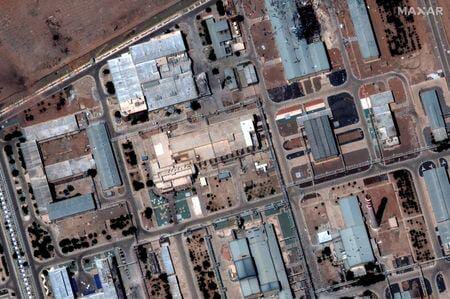(By: Mian Iftikhar Ahmad)
The recent political and constitutional developments in Pakistan have once again placed the judiciary at the center of national attention. The passage of the 27th Constitutional Amendment with a two-third majority, the sudden resignations of two senior Supreme Court judges, the third protest letter written by Justice Salahuddin, and rising indications that more resignations may emerge from the High Courts and even the Supreme Court have generated one of the most serious institutional confrontations in recent years. The intensity of these events suggests that Pakistan’s constitutional future is entering a new and uncertain phase, where trust within the judiciary itself is diminishing, external pressures are being openly discussed, and political forces appear deeply invested in shaping the judicial landscape.
The government presented the 27th Amendment as a reform measure designed to improve judicial efficiency and accountability. However, a significant portion of the legal community, opposition parties, and even some sitting judges have interpreted the amendment as an attempt to exert political and institutional control over the judiciary. The rapid approval of the amendment and the abrupt resignations of two Supreme Court judges immediately afterward created a wave of concern, indicating that the internal environment of the Court had already been strained and that the amendment merely triggered long-standing tensions.
The resignation letters highlighted issues related to institutional interference, lack of judicial independence, internal pressures, and concerns about the current environment of judicial functioning. These concerns are not isolated. In legal circles, there is growing speculation that more High Court judges—particularly those already under pressure or dissatisfied with the current constitutional environment—may step down if the internal situation continues to deteriorate. Such a chain reaction could significantly weaken the functioning of the judiciary. Pakistan’s courts already suffer from massive case backlogs; mass resignations would deepen the crisis, extend delays in justice, and erode public confidence in the judicial system.
The Full Court meeting scheduled for tomorrow has become a focal point of national debate. Normally, Full Court meetings are procedural or consultative gatherings. However, this meeting carries exceptional weight due to the gravity of the ongoing judicial crisis. The Full Court is expected to evaluate the amendment, the resignations, the internal climate of the judiciary, and the perceived institutional pressures. It may adopt a unified judicial position, issue a collective statement, formulate a committee to investigate concerns raised by judges, or reinterpret the amendment through a constitutional lens. Some observers believe that if disagreements within the judiciary intensify, the Supreme Court may opt to take suo motu notice or refer the issue to a larger bench for constitutional interpretation. In all scenarios, the decisions emerging from this meeting will significantly influence the future direction of Pakistan’s judicial structure.
The third letter written by Justice Salahuddin has added a new and decisive dimension to the crisis. His letter points toward internal discontent, external pressure, and concerns about the erosion of judicial independence. Justice Salahuddin has positioned himself as a defender of constitutional autonomy, emphasizing that judges cannot operate under fear, pressure, or political influence. This letter has elevated him as a central figure in the unfolding judicial struggle and suggests that he may play a prominent role in future constitutional cases, public forums, or debates surrounding judicial freedom. Historically, Pakistan has seen retired or resigning judges take up the cause of constitutionalism, and Justice Salahuddin’s stance indicates that he may emerge as the leading legal voice in defending judicial independence in the months ahead.
Retired or resigned judges in Pakistan often pursue careers in arbitration, international commissions, academia, human rights advocacy, think tanks, or private legal consultancy. However, the current environment presents a unique possibility: judges who resign on principle may choose to engage in public discourse more directly and openly. They may become strong moral and legal voices against institutional interference, join international legal forums, support judicial reform movements, or even contribute to shaping new constitutional narratives. Such activism by former judges could significantly influence public opinion as well as ongoing political and legal debates.
If High Courts begin experiencing resignations, the consequences would be profound. Pakistan’s High Courts collectively handle hundreds of thousands of pending cases. Any disruption in judicial manpower would slow down proceedings further, frustrate litigants, strain lower courts, and create an impression of dysfunction in the justice system. Additionally, the process of appointing new judges—through the Judicial Commission and the Parliamentary Committee—is itself sensitive to political tensions. Any institutional conflict could delay appointments, create controversies around new nominees, and fuel further instability.
The turmoil surrounding the 27th Amendment reflects deeper structural issues. Pakistan’s judiciary has historically been entangled in political conflicts, military interventions, constitutional deviations, and power struggles. From the Legal Framework Order to the Provisional Constitutional Orders, from ousted judges to restoration movements, and from judicial activism to judicial restraints, the institution has rarely enjoyed a period of uninterrupted independence. Yet, the current crisis is arguably more serious because the division is emerging from within the judiciary itself. Letters, public disagreements, internal distrust, and resignations indicate an institutional fracture that could have long-term implications for the constitutional order.
The coming days are particularly crucial. If the Full Court succeeds in developing a collective and coherent internal position, it may help restore confidence and prevent further fragmentation. On the other hand, if divisions deepen or further resignations occur, Pakistan may witness one of the most serious judicial breakdowns in its constitutional history. The stability and credibility of the judicial system depend on how this internal crisis is resolved, how the executive responds, and whether political forces choose restraint or confrontation.
Ultimately, the question at the heart of the crisis is whether Pakistan’s institutions will respect constitutional boundaries or whether the struggle for influence will push the country into a deeper governance crisis. At a time when public trust in political institutions is already fragile, the judiciary cannot afford further erosion of credibility. Ensuring judicial independence, transparency, and internal unity is essential not only for the judiciary itself but for Pakistan’s broader democratic trajectory. The future of constitutionalism in Pakistan will depend on whether institutions choose cooperation over conflict and principle over power.



